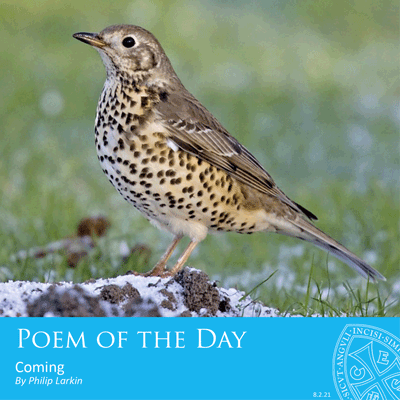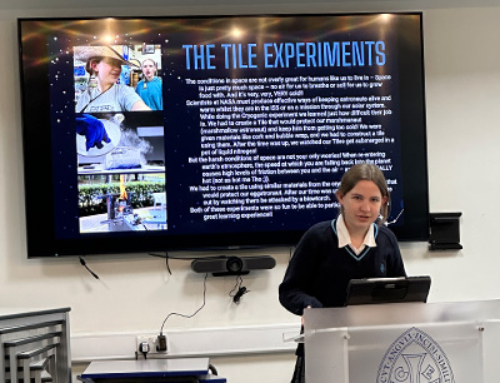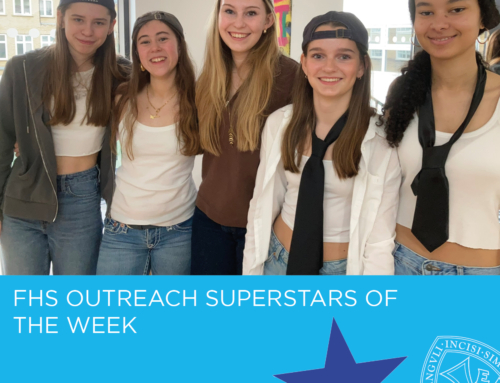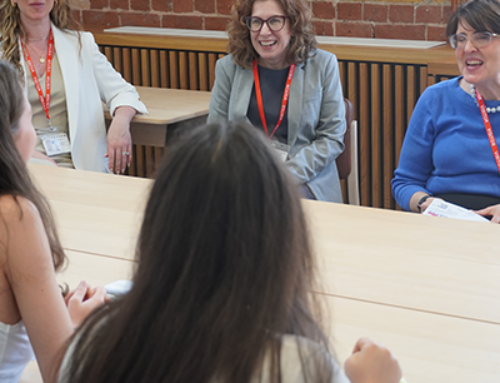Today’s poem has been chosen and introduced by Andrew Macdonald-Brown, Teacher of English and Classics
This little spell of Ukrainian weather notwithstanding, you’ll have noticed that each week the days are lasting longer. And you may have spotted a few snowdrops, crocuses, and even daffodils, poking their pretty heads above the sodden earth.
In other words…spring is coming!
The cheerful anticipation of spring is such a particular, perennial feeling – there should really be a word for it. (I expect the Germans have one.) Today’s poem beautifully conveys that feeling; it is Coming by Philip Larkin – familiar to our Year 11s (and the 12s and 13s) from their much-loved English Literature IGCSE anthology.
For Larkin, spring is heralded by the song of a thrush, heard suddenly one evening in late winter from the depths of a ‘bare garden’. The thrush’s song announces: ‘It will be spring soon, / It will be spring soon – ’ (The repetition both mimics the thrush’s distinctive way of repeating phrases and suggests Larkin’s own delight.)
To the winter-weary Larkin, the song is astonishing and rejuvenating (‘I…feel like a child’). Yet it is not an unqualified joy. Referring to his own childhood as ‘a forgotten boredom’, Larkin compares his feelings now to those of a rather confused child, who, surprised at their parents ‘reconciling’ (presumably after a row), only ‘starts to be happy’. And so the poem ends – like so many of Larkin’s poems – on an oddly insecure, unresolved note.
It’s a note which particularly resonates this year. Lockdowns may become a forgotten boredom sooner than we imagine. In the meantime, the coming of this most longed-for spring evokes, along with the hope of warmer, better days, other emotions too: anxiety, grief, even perhaps a kind of guilt. Can we start to be happy yet?
Coming
by Philip Larkin
On longer evenings,
Light, chill and yellow,
Bathes the serene
Foreheads of houses.
A thrush sings,
Laurel-surrounded
In the deep bare garden,
Its fresh-peeled voice
Astonishing the brickwork.
It will be spring soon,
It will be spring soon—
And I, whose childhood
Is a forgotten boredom,
Feel like a child
Who comes on a scene
Of adult reconciling,
And can understand nothing
But the unusual laughter,
And starts to be happy.














